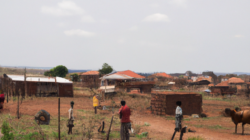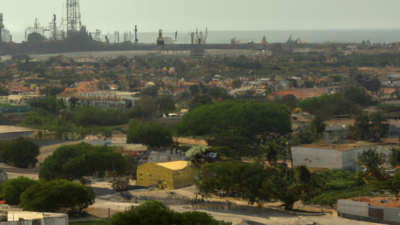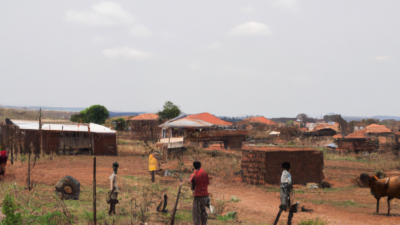<!DOCTYPE html>
<html lang="en">
<head>
<meta charset="UTF-8">
<meta name="viewport" content="width=device-width, initial-scale=1.0">
<title>The Economy of Angola Before Colonization</title>
<style>
body {
font-family: Arial, sans-serif;
line-height: 1.6;
margin: 0;
padding: 20px;
background-color: #f4f4f4;
}
h1 {
color: #333;
}
p {
margin-bottom: 20px;
}
.container {
max-width: 800px;
margin: auto;
background: #fff;
padding: 20px;
box-shadow: 0 0 10px rgba(0, 0, 0, 0.1);
}
</style>
</head>
<body>
<div class="container">
<h1>The Economy of Angola Before Colonization</h1>
<p>Before the onset of European colonization, Angola's economy was characterized by a diverse array of activities
that were heavily influenced by the region's geography, climate, and cultural practices. The economic landscape
was predominantly agrarian, with communities relying on subsistence farming, fishing, and hunting. This article
delves into the various aspects of Angola's pre-colonial economy, highlighting the key sectors and the social
structures that underpinned them.</p>
<h2>Agriculture as the Economic Backbone</h2>
<p>Agriculture was the cornerstone of Angola's economy before colonization. The fertile soil and favorable climate
conditions in many parts of the region allowed for the cultivation of a variety of crops. Staple foods such as
millet, sorghum, and yams were commonly grown. These crops not only provided sustenance for local communities
but also facilitated trade between different groups within the region. The agricultural practices were largely
traditional, with farmers employing techniques that had been passed down through generations.</p>
<h2>Livestock and Animal Husbandry</h2>
<p>In addition to crop farming, livestock rearing played a significant role in the pre-colonial economy. Cattle,
goats, and sheep were the primary animals raised, providing meat, milk, and hides. Cattle, in particular,
held substantial economic and cultural value. They were not only a source of food but also a measure of wealth
and social status. Livestock was often used in trade and as a form of currency in various transactions, including
dowries and conflict resolution.</p>
<h2>Fishing and Coastal Trade</h2>
<p>For communities residing along Angola's extensive coastline and riverbanks, fishing was a vital economic activity.
The abundant marine resources provided a steady supply of fish, which were consumed locally and traded with
inland communities. Coastal trade routes facilitated the exchange of goods such as salt, fish, and other marine
products for inland agricultural produce. This trade network extended beyond Angola's borders, connecting with
other regions in Central and Southern Africa.</p>
<h2>Craftsmanship and Local Industries</h2>
<p>Craftsmanship and local industries also contributed to Angola's pre-colonial economy. Skilled artisans produced
a variety of goods, including pottery, textiles, tools, and intricate metalwork. These items were essential for
daily life and played a role in trade. Ironworking, in particular, was a highly valued skill, as iron tools and
weapons were crucial for agriculture, hunting, and defense. The production of these goods fostered a sense of
community and cultural identity among different groups within Angola.</p>
<h2>Trade Networks and Economic Exchange</h2>
<p>The economy of pre-colonial Angola was not isolated; it was part of a broader network of trade and economic
exchange. Regional trade routes connected Angola with neighboring territories, facilitating the movement of
goods, people, and ideas. The exchange of agricultural products, livestock, crafts, and other goods helped to
sustain local economies and fostered interdependence among different communities. This network of trade also
played a role in the diffusion of cultural practices and technological innovations.</p>
<h2>Conclusion</h2>
<p>Before colonization, Angola's economy was a complex and dynamic system that relied on a combination of
agriculture, livestock rearing, fishing, craftsmanship, and trade. The economic activities were deeply
intertwined with the social and cultural fabric of the region, shaping the livelihoods and identities of its
people. Understanding the pre-colonial economy of Angola provides valuable insights into the resilience and
adaptability of its communities in the face of changing circumstances.</p>
</div>
</body>
</html>
Hello! How can I assist you today?
Hello! How can I assist you today?













